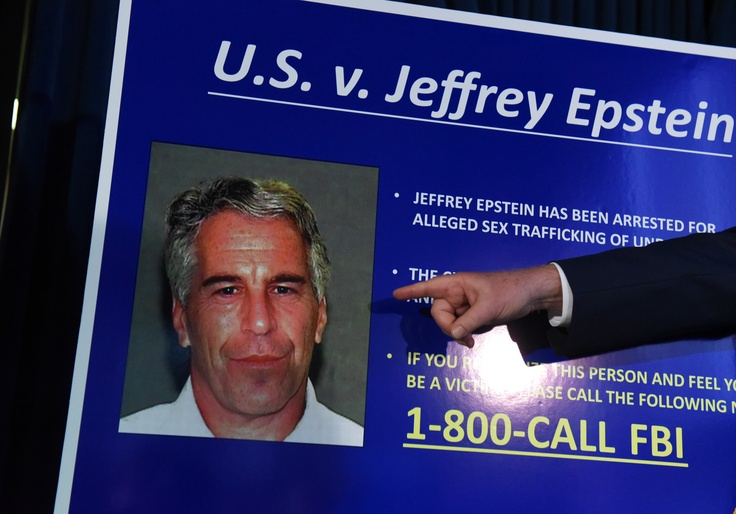It's not long into Perversion of Justice: The Jeffrey Epstein Story when I start wondering who might play the author, Julie K. Brown, in the movie this book was so conspicuously written to be adapted into. Brown, the veteran Miami Herald journalist who is widely credited with bringing down Epstein through her 2018 reporting on the case, weaves in stories about her investigative work alongside personal tales of her on-again, off-again boyfriend ("We had incredible chemistry, but he was a bad habit that I knew I had to break"), the difficulties of single-working motherhood (she had to leave her kid at the dentist to cover a shooting), and her own struggles growing up without a father.
While Brown's book is short on new Epstein bombshells, it's a good rundown of the life and daily work of a talented investigative reporter on the trail of a great story. Perversion of Justice provides a behind-the-scenes look into how Brown pieced together her deeply reported 2018 exposé into Epstein's underage sex trafficking operation and the sleazy cast of lawyers and public officials who (almost) helped him get away with it. There is lots of wading through public records, door-knocking, source-wrangling, and dingy hotel stays with her trusted photographer, Emily.
Brown's Miami Herald articles were extremely helpful last year while my coauthor Daniel Halper and I were writing our book, A Convenient Death: The Mysterious Demise of Jeffrey Epstein. Her detailed reporting—which was based on first-time interviews with many of Epstein's victims and two key local law enforcement sources—provided some of the most comprehensive and haunting coverage of the Epstein case to date. Brown also adeptly turned a story that had been largely confined to true crime and tabloids into a national political scandal by planting the focus on former Florida prosecutor Alex Acosta, Donald Trump's then-labor secretary who had granted Epstein a sweetheart plea deal in 2007.
"Sometimes I think about how, if I had landed that job at the Washington Post, Alexander Acosta might now be a Supreme Court justice," writes Brown in the book's introduction, noting that the Post passed her over for a spot on its investigative team back in 2017.
One surprising chapter in Perversion of Justice focuses on Epstein's death in prison, and Brown's skepticism over the government's determination that he committed suicide. She bases this on some of the same findings that Halper and I wrote about in our book, including forensic pathologist Michael Baden's autopsy review (which found physical markers that were inconsistent with suicide), Epstein's behavior leading up to his death (he spoke enthusiastically with his lawyers about fighting the case), and interviews with Epstein's close friends and relatives.
Brown notes that there are still unanswered questions about the circumstances of Epstein's death and writes that the FBI and Department of Justice have "an obligation to investigate this part of the story, if for no other reason than to bring closure for all the women he abused." Kudos to her for taking a position that has been prematurely dismissed as a conspiracy theory by many journalists.
As for a movie adaptation: Brown's book, while lacking major new revelations, might be the only account of the sordid underage sex trafficking saga that has an ending satisfying enough for Hollywood. Her articles in 2018 reignited public anger over Epstein's cushy plea deal, leading the feds to open a new case against the financier, and forcing a Trump cabinet member to resign in the process. While Epstein managed to evade justice for a final time, many of his victims were able to find some comfort in Brown giving voice to their stories.
Perversion of Justice: The Jeffrey Epstein Story
by Julie K. Brown
Dey Street Books, 464 pp., $27.99
